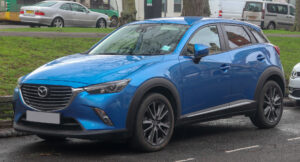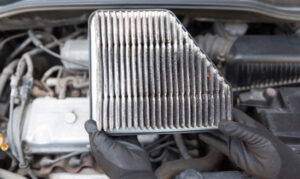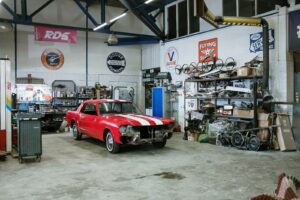Nickel-Metal Hydride (NiMH) batteries are a cost-effective alternative to traditional lead-acid batteries and have become increasingly popular in hybrid and electric vehicles. These batteries have a number of benefits over other types of batteries and are a reliable and efficient option for powering vehicles.
Purpose
The primary purpose of NiMH batteries is to store and supply electrical energy in vehicles. They are used to power the electric motor in hybrid and electric vehicles, and can also be used for other applications such as backup power for homes and businesses.
Importance
The importance of NiMH batteries lies in their ability to provide a reliable and efficient source of power for vehicles. They have a higher energy density than lead-acid batteries, which means they can store more energy in a smaller package. This is particularly important for electric and hybrid vehicles, which need to maximize the amount of energy they can store in order to extend their range.
Benefits
- High energy density: NiMH batteries have a higher energy density than lead-acid batteries, which means they can store more energy in a smaller package. This is particularly important for electric and hybrid vehicles, which need to maximize the amount of energy they can store in order to extend their range.
- Long lifespan: NiMH batteries have a long lifespan and can be cycled (charged and discharged) many times without losing capacity. This makes them an ideal choice for vehicles that need to be powered for long periods of time.
- Low maintenance: NiMH batteries require less maintenance than lead-acid batteries and do not require the same level of care and attention. This makes them an easy and convenient choice for many applications.
- Low environmental impact: NiMH batteries are more environmentally friendly than lead-acid batteries and other types of batteries. They do not contain any toxic heavy metals and are considered safer for the environment.
Using NiMH batteries
Using NiMH batteries is relatively simple and straightforward. They can be charged using a standard electrical outlet or by connecting the vehicle to an external charger. It is important to monitor the charging process and ensure that the battery is not overcharged, as this can lead to damage and reduced performance.
When using NiMH batteries in a vehicle, it is important to ensure that the battery is properly sized for the vehicle and that the vehicle’s charging and management systems are compatible with the battery. It is also important to monitor the battery’s performance over time and to replace it if its capacity begins to degrade.
Precautions
When handling or working with NiMH batteries, it is important to take certain precautions to ensure that you do not damage the battery or put yourself at risk of injury.
- Always wear protective gear such as safety glasses, gloves and long-sleeve shirts when working with batteries.
- Do not overcharge the battery as it can damage the battery and lead to reduced performance.
- Do not drop or puncture the battery, as this can cause a dangerous short circuit.
- Avoid storing batteries in extreme temperatures, as this can damage the battery and reduce its performance.
Invented
The idea of nickel-metal hydride batteries was originated by the japanese scientist Stanislao S.W. Frandson in the early 1960s. The first practical nickel-metal hydride batteries were developed in the late 1970s and early 1980s by teams of scientists in Japan and the United States.
Other Types
There are several other types of batteries commonly used in vehicles today, including:
- Lithium-ion batteries: these batteries have a higher energy density than NiMH batteries and have become increasingly popular in electric vehicles. They also have a longer life-cycle and lower self-discharge rate.
- Lead-acid batteries: these batteries have been used for over a century in automobiles and are still used in some hybrid and electric vehicles today. They are cheaper than NiMH and Lithium-ion batteries, but they have a lower energy density and require more maintenance.
- Lithium Iron Phosphate (LiFePO4) batteries: which is a derivative of Lithium-ion batteries, have a very high thermal stability and longer life cycle. They have good energy density and are also safer than other lithium-ion batteries due to its thermal stability. It is commonly used in electric bicycles, solar storage systems, and electric vehicles.
Conclusion
In conclusion, Nickel-Metal Hydride (NiMH) batteries are a cost-effective and efficient option for powering hybrid and electric vehicles. They have a high energy density, long lifespan, low maintenance, and low environmental impact. They are easy to use and monitor, and offer a reliable and safe alternative to lead-acid batteries and other types of batteries. With the constant technological advancements, NiMH batteries are set to play a crucial role in the future of sustainable transportation.










